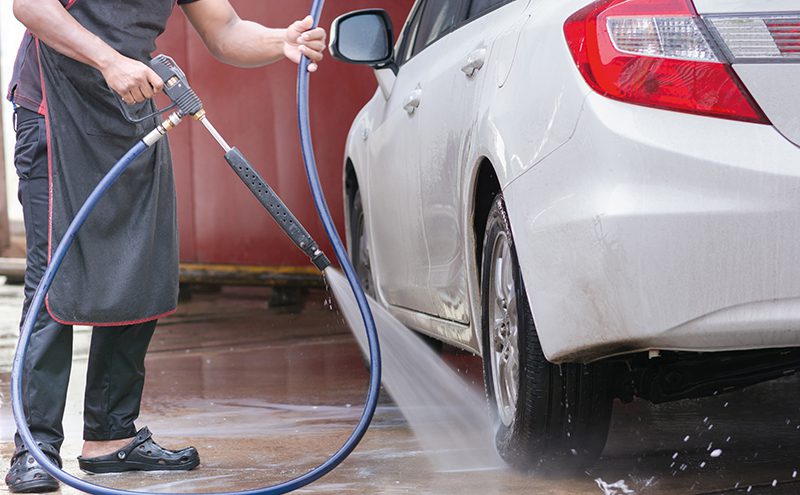Environmental groups step up
A NEW set of guidelines for vehicle washing and cleaning businesses has been produced in a joint partnership between Scottish, Northern Irish and Welsh environmental organisations.

The new guidelines, produced by the Scottish Environment Protection Agency (SEPA), Natural Resources Wales and the Northern Ireland Environment Agency, offer advice on the steps business owners must take to stay on the right side of the law.
Businesses in Scotland that wash vehicles, or anyone who washes vehicles as part of a business activity, must comply with environmental legislation, with the guidelines noting that “whether you’re cleaning just one vehicle or responsible for a large lorry fleet”, vehicle wash operators are responsible for their waste disposal and the environmental impact of their operation.
SEPA guidelines warn that vehicle wash operators must arrange for the collection and disposal of trade effluent – any liquid waste produced by a business – to prevent pollution, adding that it is illegal to discharge waste to the environment or drains without permission.
[box style=”0″]
Keeping it all legal
Car wash operators must comply with the requirements of Duty of Care Regulations, adhering to the points below, or face legal consequences.
– Accurately describing waste, including hazardous properties.
– Safe and secure storage of waste
– Segregation of recyclable waste where required.
– Segregation of hazardous/ special waste, such as oily rags or absorbents.
– The use of a registered waste carrier to remove waste from your site. You should also know where the carrier takes your waste.
– The use of waste transfer notes or consignment notes for hazardous waste.
[/box]
Vehicle wash operators must meet a raft of requirements or risk falling foul of environmental regulations including consent from the sewer provider for waste disposal, a designated area for vehicle washing and cleaning, and for those businesses who offer, a designated area for jet/pressure or steam washing as well as a designated area for dewaxing or degreasing, which cannot be on “unmade ground”, or in areas which discharge to surface water drains.
The new guidelines also offer advice on the physical requirements of a vehicle washing business.
Areas used for vehicle maintenance must have an impermeable surface and must drain into either a foul sewer, with consent, or to a sealed sump – a hollow depression which collects liquids.
Never use degreasers or steam cleaners to clean forecourts unless the area drains into a foul sewer.
Retailers who run a vehicle washing and cleaning business at their forecourt are also legally required to ensure they do not allow run-off containing cleaning chemicals, detergents or emulsifier to enter any surface water drainage.
The guidelines also offer maintenance advice, warning that retailers must never use degreasers or steam cleaners to clean forecourts or yards unless the area drains into a foul sewer, adding that all business owners must comply with the requirements of Duty of Care Regulations (see above).
Brian Madderson, chairman of the Petrol Retailers Association, welcomed the release of new guidelines, which coincides with the work the organisation has been doing to tackle unregulated hand car washes.
“This may well breathe a second lease of life into automatic car washes – that’s roll overs and jet washes – when there are less hand car washes around because they are not meeting the requirements of existing regulations,” he said.



















